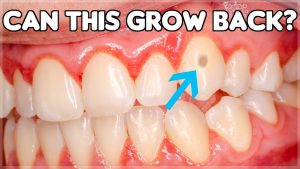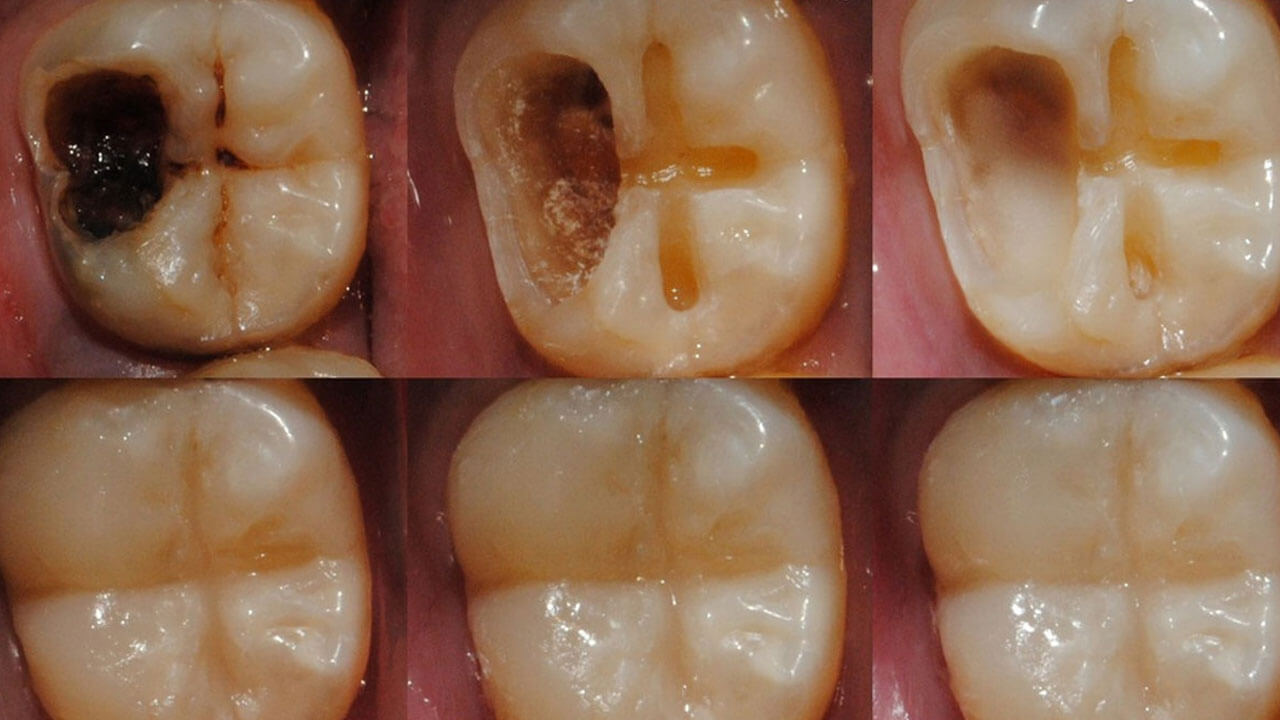How to Rebuild Tooth Enamel Naturally: A Comprehensive Guide
Introduction
Our tooth enamel is the protective layer that covers the outer surface of our teeth. It plays a crucial role in preventing tooth decay and sensitivity. However, due to various factors such as poor oral hygiene, acidic foods, and certain medications, tooth enamel can become damaged or eroded over time. While tooth enamel cannot be regenerated naturally, there are several steps you can take to help rebuild and strengthen it. In this article, we will explore some effective methods for rebuilding tooth enamel naturally.
1. Maintain Good Oral Hygiene
Proper oral hygiene is essential for maintaining healthy teeth and gums. Brushing your teeth twice a day with a fluoride toothpaste and using a soft-bristled toothbrush can help protect your tooth enamel. Additionally, don’t forget to floss daily to remove plaque and food particles from between your teeth and along the gumline. Rinse your mouth with an antibacterial mouthwash to reduce bacteria and maintain oral health.
2. Consume a Balanced Diet
Your diet plays a significant role in your overall oral health. Consuming a balanced diet rich in vitamins and minerals can help support tooth enamel remineralization. Include foods high in calcium, such as dairy products, leafy greens, and almonds, as calcium is essential for strong teeth. Foods rich in phosphorus, such as eggs, fish, and lean meat, can also contribute to rebuilding tooth enamel. Avoid sugary and acidic foods and beverages as they can contribute to enamel erosion.

3. Use Fluoride Products
Fluoride is a mineral that can help strengthen tooth enamel and protect against decay. Look for fluoride toothpaste and mouthwash that are approved by dental associations. Fluoride helps to remineralize weakened enamel and make it more resistant to acid attacks. Use fluoride products as directed by your dentist or follow the instructions on the packaging.
4. Limit Acidic Foods and Beverages
Acidic foods and beverages, such as citrus fruits, tomatoes, soda, and fruit juices, can erode tooth enamel over time. While it may be challenging to completely avoid these foods, try to limit their consumption and rinse your mouth with water afterward. This can help neutralize the acidity and minimize its impact on your tooth enamel.
5. Drink Plenty of Water
Water is not only essential for your overall health but also for maintaining good oral hygiene. Drinking water after meals and snacks helps wash away food particles and neutralize acids in your mouth. It also promotes saliva production, which plays a vital role in protecting tooth enamel. Opt for fluoridated water when possible for additional enamel-strengthening benefits.
6. Chew Sugar-Free Gum
Chewing sugar-free gum, especially one that contains xylitol, can stimulate saliva flow and help in the remineralization process. Saliva contains minerals that aid in repairing and rebuilding tooth enamel. The act of chewing gum also helps remove food particles and bacteria from your teeth.
7. Avoid Teeth Grinding
Grinding or clenching your teeth can cause enamel erosion and other dental problems. If you suspect that you grind your teeth, consult your dentist, who can recommend wearing a mouthguard or other strategies to protect your teeth. Managing stress through relaxation techniques can also help reduce teeth grinding.
8. Consider Remineralizing Toothpaste
Remineralizing toothpaste contains ingredients that promote the remineralization of tooth enamel. These toothpastes often contain minerals like calcium, phosphate, and hydroxyapatite, which help strengthen and rebuild enamel. Look for toothpaste specifically labeled as “remineralizing” or “enamel-strengthening” and use it as part of your daily oral hygiene routine.

9. Oil Pulling
Oil pulling is an ancient Ayurvedic practice that involves swishing oil, typically coconut oil or sesame oil, in your mouth for a few minutes and then spitting it out. This practice is believed to improve oral health and promote enamel remineralization. While scientific evidence on oil pulling is limited, some studies suggest that it may reduce plaque and gingivitis, which indirectly benefits tooth enamel.
10. Visit Your Dentist Regularly
Regular dental check-ups are essential for maintaining good oral health and detecting any dental issues early on. Your dentist can assess the condition of your tooth enamel and provide professional guidance on rebuilding and protecting it. They may also recommend treatments such as fluoride varnishes or dental sealants to further strengthen your enamel.
Conclusion
While tooth enamel cannot be naturally regenerated, you can take proactive steps to rebuild and strengthen it. By maintaining good oral hygiene, consuming a balanced diet, using fluoride products, and making lifestyle changes, you can support the remineralization process and protect your tooth enamel from further damage. Remember to visit your dentist regularly for professional guidance and advice tailored to your specific dental needs. By following these natural approaches, you can promote optimal oral health and maintain strong, healthy tooth enamel for years to come.
Disclaimer: The information provided in this article is for educational purposes only and should not be considered as a substitute for professional dental advice. Consult your dentist for personalized guidance and treatment options. For kick ass dental tooth enamel see here.





